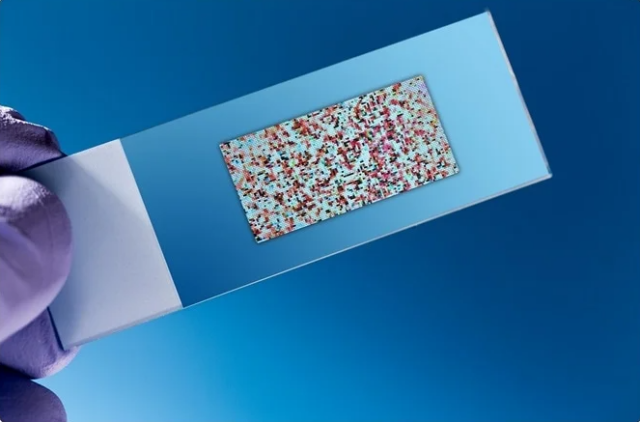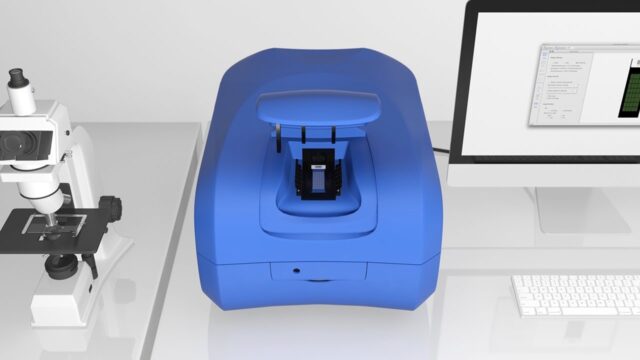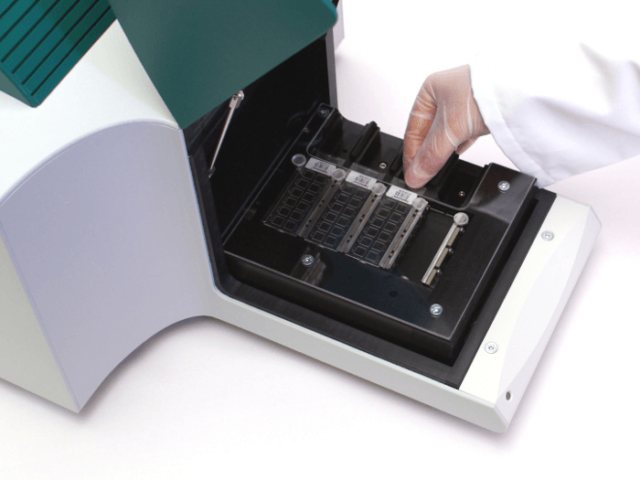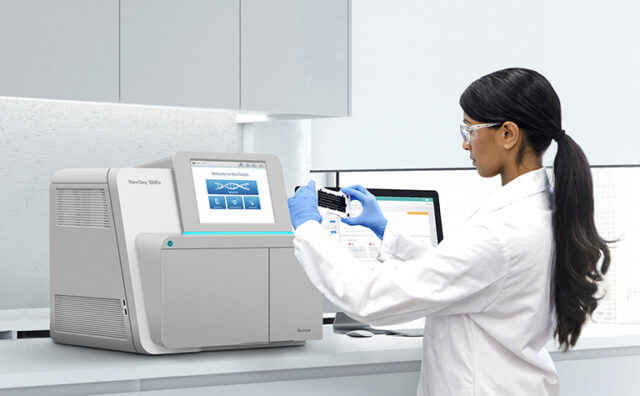
Have you ever heard of microarray before? Well, microarray technology is a developing technology used to study the expression of many genes at once. It is a newer topic and technique on the market that one can use in different fields of medicine only if they know how to approach it. The process is done through thousands of gene sequences in known locations on a glass slide called a gene chip. The process is done in a lab. DNA microarrays can be used for many purposes, including gene expression profiling, comparative genomic hybridization, SNP detection, etc. You will see its application in disease diagnosis, epigenomics, bioengineering, agricultural genomes, and a lot of different fields. If you wish to know a bit more about this process keep on reading and find your answers down below.
1. What are microarrays?
When they were first introduced, DNA microarrays were used only as a research tool for modern medicine, and have been seen more so as a side tool. A typical microarray experiment involves the hybridization of an mRNA molecule to the DNA template from which it originated. Then, a scientist takes a close look at its structure and by paying close attention to any changes can find out a lot about different, new or dangerous cells and tissues. Today, DNA microarrays are used in clinical diagnostic tests for some diseases. Instead of detecting and studying one gene at a time, microarrays allow thousands of specific DNA or RNA sequences to be tested within a given moment. By doing it simultaneously, the scientist can see a change on a small glass or silica slide that is only 1-2 cm square.
We are an mRNA CDMO passionate about channeling our technology and the hard work of our team to democratize mRNA R&D by making mRNA readily available to more researchers and companies. We believe that science matters more than ever and that mRNA will open many more doors for science to change the lives of humans everywhere. To fulfill this vision, Vernal Biosciences is committed to increasing access to high-quality mRNA.
2. What to know about their application in medicine?

You can use microarrays for a lot of different trials and tests in medicine. With their testing, one can see which drugs might be best prescribed for particular individuals or what drugs should be avoided at all times. Microarray tests still tend to be less expensive than sequencing, which is why people tend to book them and are giving them a go. They are also often used for clinical tests and cancer research or treatments. The sample spot sizes are typically less than 200 microns in diameter and usually contain thousands of spots that you can test and study under a microscope with the right equipment and in a lab. An experiment with a single DNA chip can provide information on thousands of genes simultaneously when tested properly and the right way. It is not a time-consuming process, yet it can leave you with a ton of data and your questions answered.
3. How does microarray work?
A lot of people who are not in the medical, scientific, or chemical niche wonder about this specific question. The process begins by collecting a sample of DNA from the patient and putting it in a routine control sample tube or bottle. It is done through your blood. The process is done through two complementary strands of DNA into single-stranded molecules. Next, there is a fragment with a fluorescent dye that shows and labels the DNA in its color as you test it. If it is okay and normal it stays the same color during the process. If the individual does not have a mutation for the gene, both colors of it such as the red and green samples will bind to the sequences on the chip that represent the sequence without the mutation. It is not a time-consuming testing process at all, just can sound a bit confusing. However, the more factors you have and the more of them have to be tested, the more time-consuming it will be in the end. It is easy to do and can be performed on anyone.
4. Different types of microarrays

Microarray experiments can be done for a lot of things and for different reasons. Some of them are:
- Expression analysis: allow the description of genome-wide expression changes in health and disease.
- Mutation analysis: a genetic test for developmental delay (DD), intellectual disability (ID), and autism spectrum disorders.
- Comparative genomic hybridization: assess the entire genome for the presence of changes in DNA copy number.
What are the examples of microarray applications?
You can apply these within the following categories and the most popular kinds are:
- Gene discovery – any form of new genes that can be detected from the get-go and they won’t go unnoticed. This includes molecular changes and DNA abnormalities of any sort.
- Disease diagnostic – you can learn a lot more about heart diseases, mental illness, infectious diseases, and especially the study of cancer with the right diagnostic.
- Drug discovery – this research and its combined information can be used to synthesize drugs that combat these proteins and reduce their effect.
- Toxicological research – if there are any harsh or toxic cells within your system they will show early on. This approach also finds a correlation between responses to toxicants and the changes in the genetic profiles of the cells exposed to such toxicants.
Ready to learn more or try out this form of testing?

If you want to do some testing and you’re intrigued by Microarrays make sure to check out axivend.com. They provide and have the best-in-class products and services. On their site, you can discover M2 spotters, LGR dispensers, iRiS label-free service, BSM readers, and many more! AxiVEND offers Instruments for spotting and reading microarrays, as well the latest in label-free detection technology. Beyond selling instruments you can also try out and enjoy their service. They can help you analyze the data and as you’re satisfied, with the demonstration you can then acquire the instruments to do it per your preference and pace. Their team of skilled experts will help you out with any unanswered questions while helping you understand the process. Give them a click and see for yourself.








